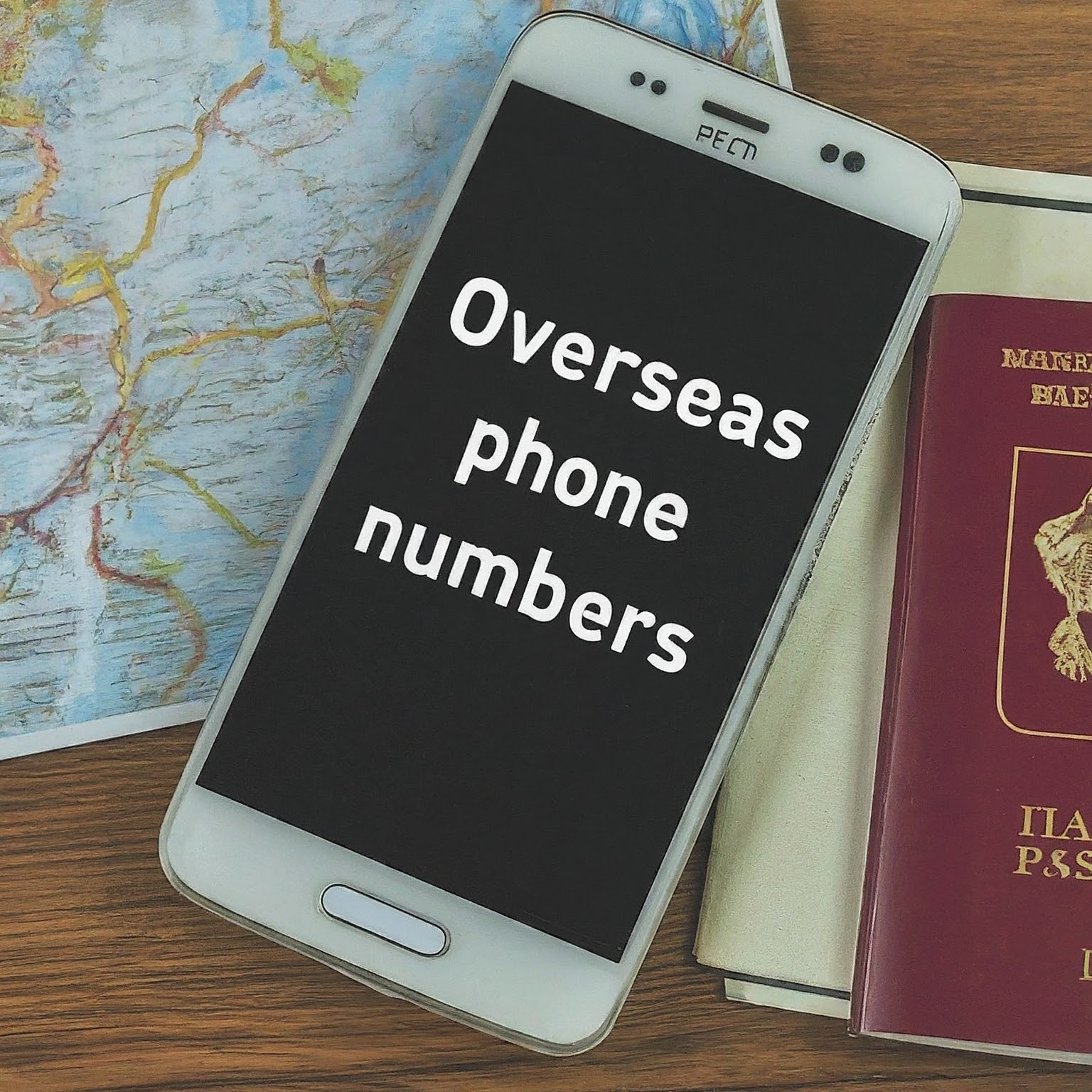Overseas phone numbers are essential tools for businesses and individuals operating in a globalized world. They enable seamless communication across borders, facilitating trade, customer service, and personal connections. This article delves into the intricacies of overseas phone numbers, exploring their types, benefits, and how to acquire and use them effectively.

What are Overseas Phone Numbers?
An overseas phone number is a telephone number assigned to a specific geographic location outside of a caller’s country. It allows individuals or businesses to receive calls from international callers as if they were local to that specific country.
Types of Overseas Phone Numbers
There are primarily two types of overseas phone numbers:
-
Geographic Numbers: These numbers are associated with a specific geographic location, such as a city or region, within a foreign country. They are ideal for businesses looking to establish a local presence and build trust with customers.
-
Non-Geographic Numbers: These numbers are not tied to a specific geographic location. They are often used for toll-free services, mobile numbers, or virtual numbers.
Benefits of Using Overseas Phone Numbers
The advantages of utilizing overseas phone numbers are manifold:
- Enhanced Customer Experience: By providing a local phone number, businesses can improve customer satisfaction and trust. Customers are more likely to engage with a company that appears to be locally based.
- Global Reach: Expanding into new markets becomes easier with overseas phone numbers. Businesses can cater to customers in different regions without incurring high international call charges.
- Cost Savings: Some providers offer cost-effective solutions for managing overseas phone numbers, potentially reducing overall communication expenses.
- Improved Business Image: A local phone number can enhance a company’s reputation and credibility in foreign markets.
- Flexibility: Overseas phone numbers offer flexibility in terms of call routing and management, allowing businesses to optimize their communication strategies.
How to Acquire Overseas Phone Numbers
There are several ways to obtain overseas phone numbers:
- Directly from Local Carriers: Contacting telecom providers in the desired country is a traditional method. However, it can be time-consuming and involves navigating foreign regulations.
- Virtual Phone Number Providers: These specialized companies offer a wide range of overseas phone numbers with various features and pricing plans. They often provide user-friendly interfaces for managing numbers and calls.
- Cloud-Based Communication Platforms: Some platforms integrate overseas phone number capabilities into their communication suites, offering additional features like call forwarding, voicemail, and call recording.
Choosing the Right Overseas Phone Number Provider
Selecting the appropriate provider for your overseas phone numbers is crucial. Consider the following factors:
- Number Availability: Ensure the provider offers numbers in the desired countries and regions.
- Features: Evaluate the range of features, such as call forwarding, voicemail, call recording, and IVR.
- Pricing: Compare pricing plans and hidden fees to find the most cost-effective option.
- Reliability: Consider the provider’s reputation for call quality and network reliability.
- Customer Support: Assess the quality and responsiveness of the provider’s customer support.
Effective Use of Overseas Phone Numbers
To maximize the benefits of overseas phone numbers, implement these strategies:
- Localize Your Greeting: Customize your voicemail or greeting message to reflect the local language and culture.
- Time Zone Considerations: Be aware of time differences to ensure timely responses to customer inquiries.
- Integrate with CRM: Connect your overseas phone numbers to your customer relationship management system for efficient call management and data analysis.
- Monitor Performance: Track call volume, call duration, and other metrics to evaluate the effectiveness of your overseas phone numbers.
- Stay Compliant: Adhere to local regulations and data privacy laws when using overseas phone numbers.
Challenges and Solutions
While overseas phone numbers offer numerous advantages, businesses may encounter challenges:
- Number Portability: Transferring existing numbers to a new provider can be complex and time-consuming.
- Call Quality: Issues with call quality may arise due to network congestion or infrastructure limitations.
- Regulatory Compliance: Staying updated with changing regulations in different countries can be burdensome.
To address these challenges, consider working with experienced providers, investing in reliable network infrastructure, and seeking legal advice to ensure compliance.
Conclusion
Overseas phone numbers have become indispensable for businesses operating in a global marketplace. By understanding their benefits, carefully selecting a provider, and implementing effective strategies, organizations can harness the power of these numbers to enhance customer experiences, expand market reach, and improve overall business performance.